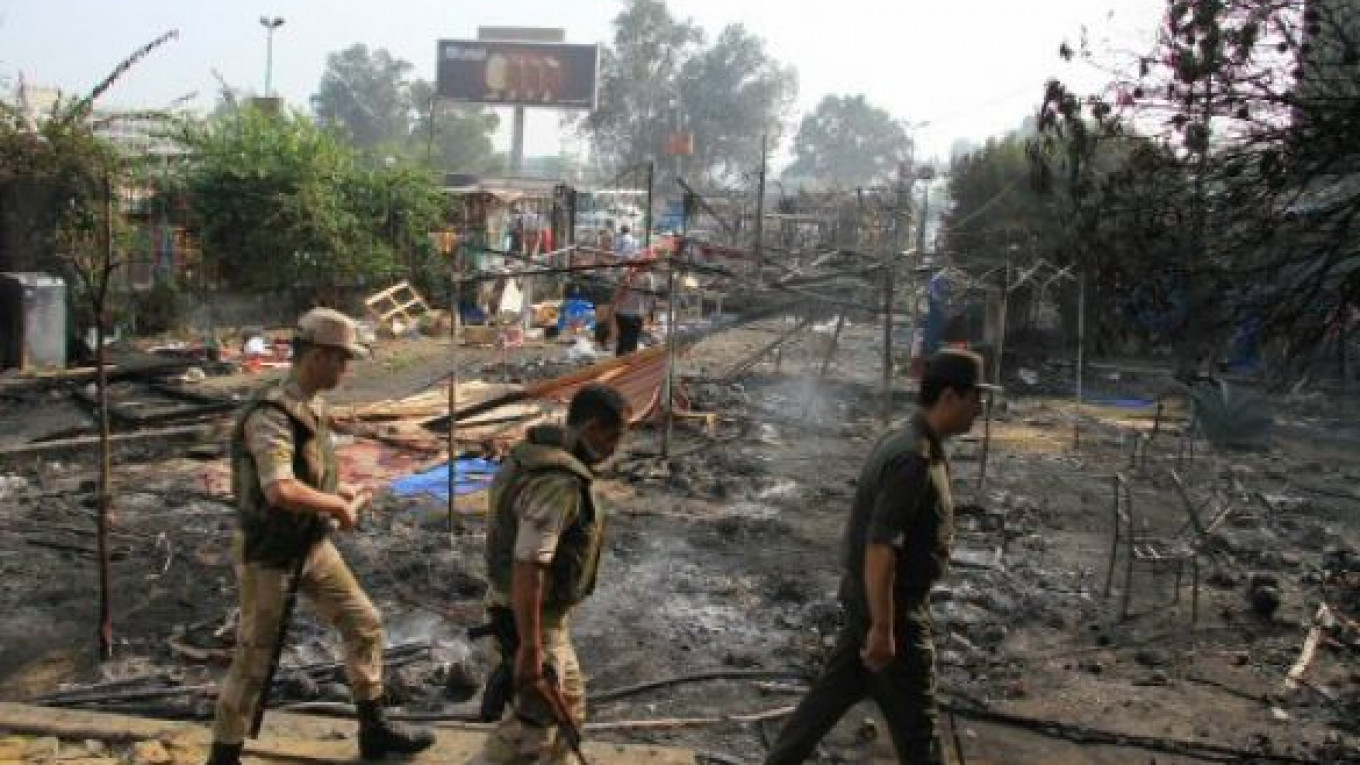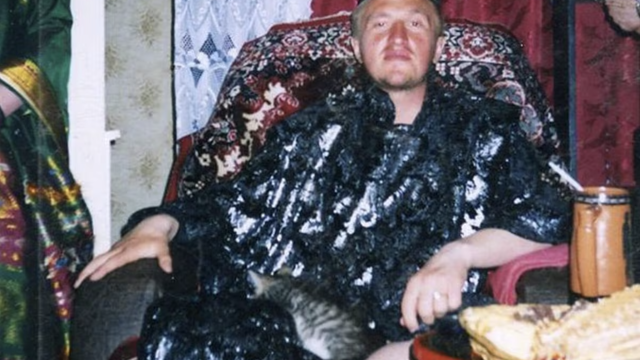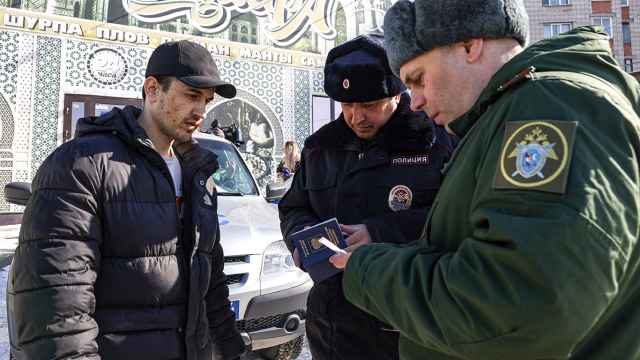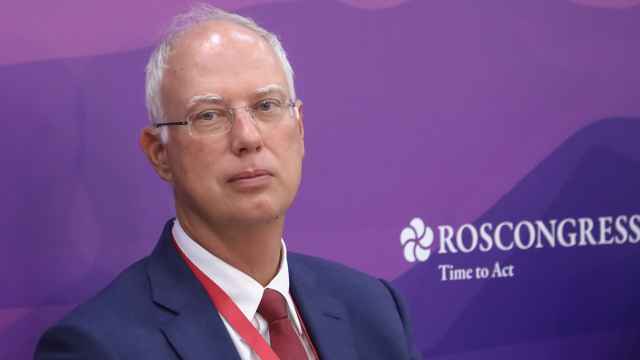A day after more than 500 people were killed in violent clashes across Egypt, the Russian government advised its citizens not to travel to the Middle Eastern nation, one of the most popular holiday spots for middle-class Russians.
But despite the sudden upheaval in the country, with Egyptian authorities having declared a nationwide state of emergency, the Federal Tourism Agency decided at a meeting Thursday not yet to evacuate any of the 40,000-60,000 Russian tourists estimated to be vacationing there currently, Interfax reported. The Federal Consumer Protection Agency said Russian tourists could ask to be evacuated from violent areas free of charge.
Given the significant number of Russians who visit Egypt on holiday, many of them staying at all-inclusive resorts on the Red Sea, both Russian and Egyptian tour companies and hotels stand to lose up to millions of dollars in canceled bookings, another blow to an already fragile Egyptian economy.
"The clashes and riots that began in the [Egyptian] capital are quickly spreading to other cities and areas of Egypt, including to those visited by tourists," Russian Foreign Ministry spokesman Alexander Lukashevich said in a statement Thursday afternoon. "Given these conditions, the Russian Foreign Ministry recommends that Russian citizens refrain from trips to Egypt."
At least a handful of Russians were caught up in the mayhem that took hold in parts of Cairo. A television crew from state news channel Rossia 24 was stopped in their car by armed men who threatened them with knives and took their computers, passports and about $6,000 in cash, one of the channel's reporters told news agencies.
But no one was injured as a result of the incident, and the Russian Embassy in Cairo said no Russian citizens had sustained injuries in clashes in the city. The embassy's consular section has been closed for two days due to the upheaval.
The Russian Foreign Ministry issued a statement expressing deep concern over the latest developments in Egypt, urging all political forces to "exercise restraint and moderation, seek guidance in supreme national interests to prevent further escalation of tensions and new human casualties."
All political forces should reconcile their differences through a wide political dialogue and the resumption of political processes, the statement said.
Russia was on good terms with ousted Egyptian President Mohamed Morsi, who was elected following the overthrow of dictator Hosni Mubarak, but the Kremlin has consistently issued grave warnings about the chaos that could ensue from the Arab Spring revolutions — warnings that are beginning to look prescient in the case of Egypt as the country descends into violence.
The Russian government has also been cooperating with the Egyptian authorities who took over after Morsi's ouster. Last month, Russia, historically a major wheat supplier to Egypt, sold the country more than 60,000 tons of wheat to help replenish dwindling domestic supplies.
The Russian export with the more immediate impact on Egypt at the moment, however, is tourists. The Egyptian embassy in Moscow said it was "distressed and surprised" by the Russian Foreign Ministry statement recommending that Russians not travel to Egypt, saying it was "very calm" at Egyptian resorts, Interfax reported.
But a consular employee at the Russian embassy in Cairo told Interfax that many Russians wanted to cut their vacations short. The employee said those who wished to do so were making the arrangements with their tour operators and airlines.
Tour agencies will give full refunds to people who have already paid for their trips but are unable to go to Egypt, Russia's Federal Tourism Agency said, noting that they will not receive their money immediately. A telephone hotline has been set up to help travelers resolve any problems getting their money back (+7-800-100-0004).
Russia's Foreign Ministry advised Russians in Egypt not to leave their resorts or travel around the country, especially to Cairo or other big cities.
Federal Tourism Agency deputy head Yevgeny Pisaryevsky told Interfax that Russia would demand that Egyptian authorities protect Russians while they remain in the country.
"I am sure that negotiations are taking place on the highest levels of government and that a mechanism for protecting Russian tourists is being worked out on the very highest level," Pisaryevsky said.
Contact the author at e.pfeifer@imedia.ru, newsreporter@imedia.ru
A Message from The Moscow Times:
Dear readers,
We are facing unprecedented challenges. Russia's Prosecutor General's Office has designated The Moscow Times as an "undesirable" organization, criminalizing our work and putting our staff at risk of prosecution. This follows our earlier unjust labeling as a "foreign agent."
These actions are direct attempts to silence independent journalism in Russia. The authorities claim our work "discredits the decisions of the Russian leadership." We see things differently: we strive to provide accurate, unbiased reporting on Russia.
We, the journalists of The Moscow Times, refuse to be silenced. But to continue our work, we need your help.
Your support, no matter how small, makes a world of difference. If you can, please support us monthly starting from just $2. It's quick to set up, and every contribution makes a significant impact.
By supporting The Moscow Times, you're defending open, independent journalism in the face of repression. Thank you for standing with us.
Remind me later.






